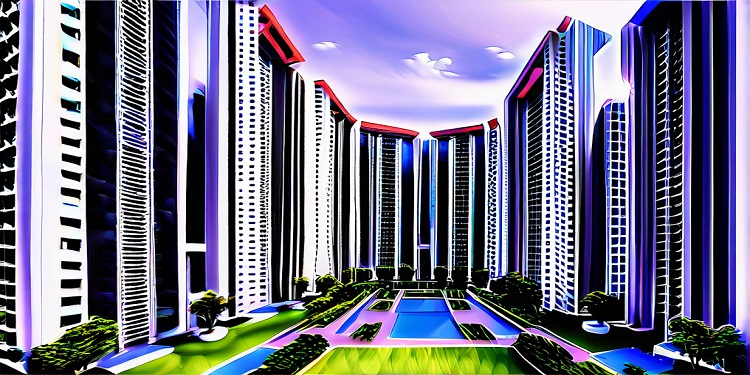In an ambitious move to reshape the housing landscape in the Philippines, Singapore-based Homeqube aims to incorporate artificial intelligence (AI) and blockchain technology into the country’s homebuilding industry. The initiative is intended to tackle persistent housing challenges, with a focus on making home construction more affordable and efficient in response to the rising demand and escalating property prices in urban areas.
Homeqube’s CEO, Jose Paolo Calma, pointed out that conventional construction materials like steel and cement have contributed to the increase in land prices. The influx of people moving to cities has further pushed demand for these materials, resulting in higher project costs and logistical challenges. These obstacles are compounded by fees incurred through intermediaries, which raise overall expenses in traditional housing projects.
To provide a solution, Homeqube introduced an innovative approach through its online Home Delivery Service. Available via the company’s website, this service offers a streamlined process covering various phases of construction. The company has outlined a detailed plan for the permitting phase, acquisition of materials over two to five months, and a rapid installation timeline of just 30 days. By reducing construction time and simplifying procedures, the Home Delivery Service is expected to ease the financial burden on homeowners and increase access to housing.
A key aspect of Homeqube’s strategy is to redefine the materials used in construction, moving away from conventional options that often entail costly and extensive renovations. The company introduced new building components specifically designed to allow for adaptability and easy configuration. One such material, Glass Fiber Reinforced Polymer (GFRP), combines durability with lightweight properties, making it resistant to extreme weather conditions, including wind speeds reaching up to 310 kilometers per hour. Additionally, GFRP is designed to be rust-proof, which reduces maintenance costs and improves longevity.
In addition to GFRP, Homeqube invested in a Carbon Kevlar Cargo boat, noted for its stability and load-bearing capacity. The company emphasized that these material choices are integral to creating resilient and adaptable living environments. Calma explained that by using regenerative materials, the company aims to foster a flexible housing environment that evolves alongside the needs of residents. He stated that this approach allows homes to be constructed anywhere, catering to the mobile lifestyles of individuals and families alike.
The company also introduced a pricing model that reflects its commitment to affordability. Homeqube revealed that with proper land, a functional home could be built for as low as PHP 1 million. This aligns with the government’s broader objectives to close the housing gap in the Philippines, a sector currently facing a significant backlog. In 2022, the Department of Human Settlements and Urban Development (DHSUD) set an ambitious target to construct one million housing units annually, an initiative aimed at addressing the country’s 6.5-million housing deficit.
Despite these objectives, the government’s housing targets have faced challenges, including financial and logistical barriers. In 2023, President Ferdinand Marcos Jr. renewed the administration’s commitment to housing, pledging to build 1.2 million units by the year’s end. However, practical limitations led to adjustments in these goals. Housing Secretary Jose Rizalino Acuzar noted that the original goal was scaled back to three million units by the end of Marcos’ term, acknowledging the financial constraints faced by private developers, who typically require up to a year to secure bank loans.
Furthermore, Pag-IBIG Fund, a government institution focused on providing affordable housing financing, allocated PHP 250 billion for the Pambansang Pabahay Para sa Pilipino Housing (4PH) program. Spread over the next six years, this fund aims to facilitate homeownership for more Filipinos. Pag-IBIG officials have highlighted the strong demand for housing and encouraged developers to participate in the 4PH program, hoping to meet the needs of a growing number of families seeking affordable homes.
Homeqube’s entry into the Philippine market is expected to play a significant role in meeting these needs. By leveraging advanced technologies and focusing on adaptable, cost-efficient housing solutions, the firm aspires to contribute to a sustainable and accessible housing market. Through its integration of AI and blockchain, Homeqube aims to optimize the construction process, reduce waste, and create a resilient housing model that could potentially reshape the country’s homebuilding industry.
